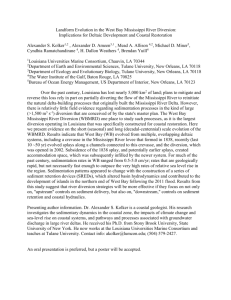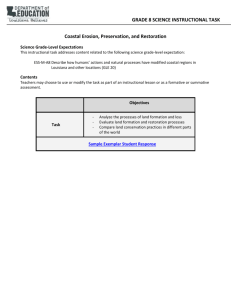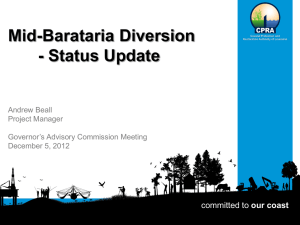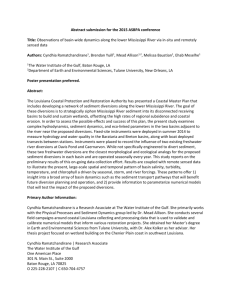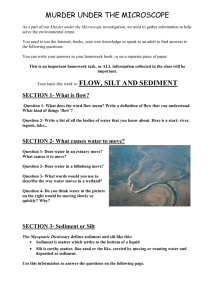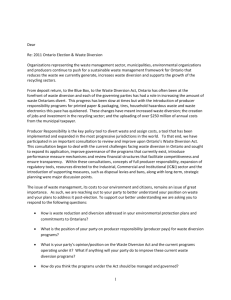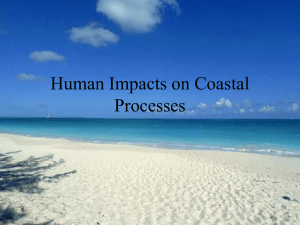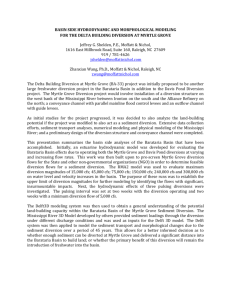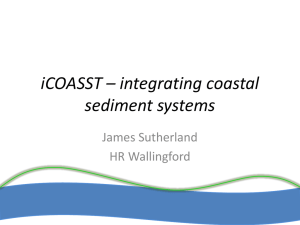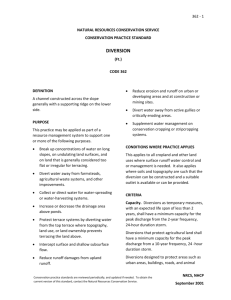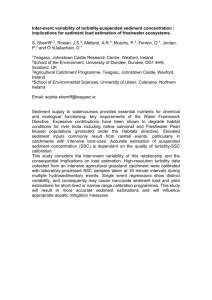Davis Pond Freshwater Diversion: Impacts of a Lower
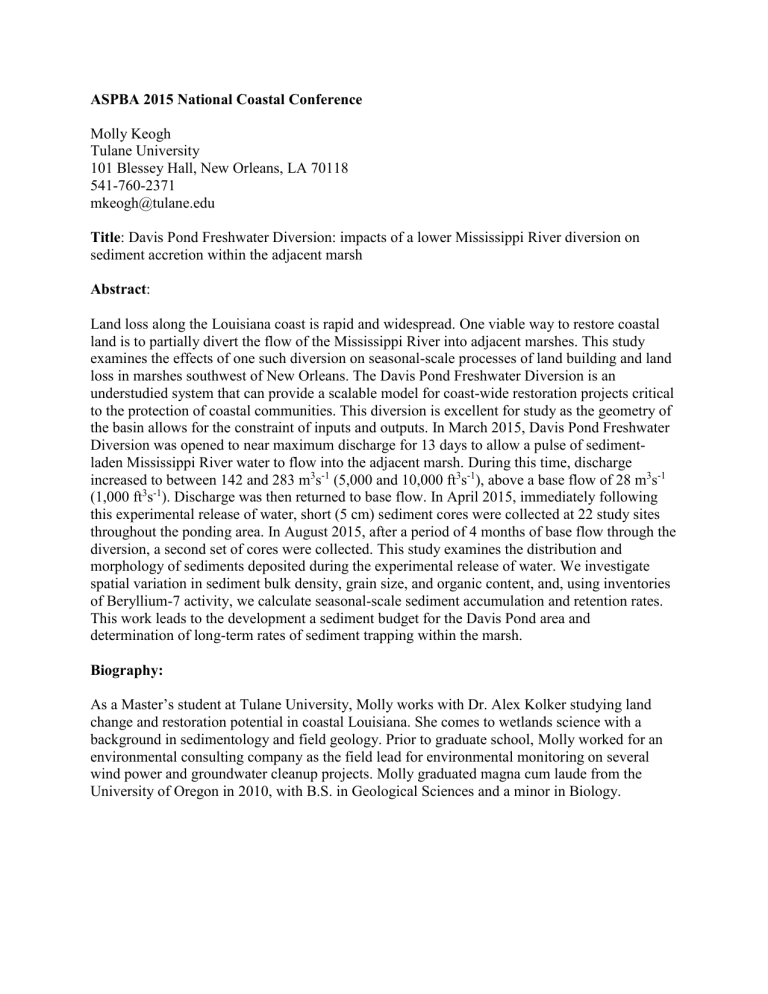
ASPBA 2015 National Coastal Conference
Molly Keogh
Tulane University
101 Blessey Hall, New Orleans, LA 70118
541-760-2371 mkeogh@tulane.edu
Title : Davis Pond Freshwater Diversion: impacts of a lower Mississippi River diversion on sediment accretion within the adjacent marsh
Abstract :
Land loss along the Louisiana coast is rapid and widespread. One viable way to restore coastal land is to partially divert the flow of the Mississippi River into adjacent marshes. This study examines the effects of one such diversion on seasonal-scale processes of land building and land loss in marshes southwest of New Orleans. The Davis Pond Freshwater Diversion is an understudied system that can provide a scalable model for coast-wide restoration projects critical to the protection of coastal communities. This diversion is excellent for study as the geometry of the basin allows for the constraint of inputs and outputs. In March 2015, Davis Pond Freshwater
Diversion was opened to near maximum discharge for 13 days to allow a pulse of sedimentladen Mississippi River water to flow into the adjacent marsh. During this time, discharge increased to between 142 and 283 m 3 s -1 (5,000 and 10,000 ft 3 s -1 ), above a base flow of 28 m 3 s -1
(1,000 ft
3 s
-1
). Discharge was then returned to base flow. In April 2015, immediately following this experimental release of water, short (5 cm) sediment cores were collected at 22 study sites throughout the ponding area. In August 2015, after a period of 4 months of base flow through the diversion, a second set of cores were collected. This study examines the distribution and morphology of sediments deposited during the experimental release of water. We investigate spatial variation in sediment bulk density, grain size, and organic content, and, using inventories of Beryllium-7 activity, we calculate seasonal-scale sediment accumulation and retention rates.
This work leads to the development a sediment budget for the Davis Pond area and determination of long-term rates of sediment trapping within the marsh.
Biography:
As a Master’s student at Tulane University, Molly works with Dr. Alex Kolker studying land change and restoration potential in coastal Louisiana. She comes to wetlands science with a background in sedimentology and field geology. Prior to graduate school, Molly worked for an environmental consulting company as the field lead for environmental monitoring on several wind power and groundwater cleanup projects. Molly graduated magna cum laude from the
University of Oregon in 2010, with B.S. in Geological Sciences and a minor in Biology.
